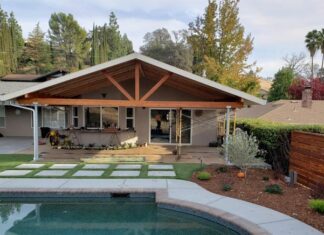Progressive City, Sustainable Future
Roseville bills itself a progressive city, focused on providing services to the community for a smart, sustainable future.
Part of that future includes recent gains in economic development as our economy recovers from the Great Recession– all the while facing an unprecedented fourth year of drought. A telltale sign of economic recovery is increased commercial and housing growth, not only in Roseville, but throughout the greater Sacramento region and statewide. As the stress on the ongoing drought wears on, customers and stakeholders ask us: “why do you continue to build when there is a water shortage or drought?”
For Roseville, the short answer is we have a goal to sustain our local economic prosperity even in times of drought. In doing so, we have made a concerted effort to plan for infrastructure improvements to access adequate water supplies to meet the needs of our community, both now and as we grow. We’ve secured surface water supply contracts as well as invested in groundwater and recycled water supplies. These past and future investments take place with the funding provided from new development projects-which creates capacity but also strengthens our water reliability for existing customers.
Even with our responsible planning efforts and investments, the Governor’s Office and the State Water Resources Control Board issued statewide water reduction mandates in April 2015. We are required to reduce our water usage by 28 percent from 2013 numbers. In other words, even if Roseville were to prohibit new development projects during this drought, water use restrictions enacted by the state and the need for our water customers to conserve would not change.
As stewards of our community, we believe the right approach is to reduce water use-especially outdoors- while balancing planned growth and local development. Building restrictions will result in reduced business earnings and significant job loss for both construction trades and in numerous supporting industries. Reduced economic output will also decrease local tax revenues that support essential services like public safety, parks, recreation and libraries, as well as delay investments in local infrastructure to maintain water resiliency.
Safeguards in place for new development
Our drought provisions includes safeguards to ensure that new development uses water wisely. For example:
- New permits are restricted from installing turf
- New homes must install water efficient fixtures and appliances and recirculating hot water systems
- During construction activities, recycled water must be used for dust control and soil processing
By the numbers: new homes and water demand
Officials anticipate that Roseville will grow by 500 houses, on average, per year. Assuming that each household uses 600 gallons of water per day, without any water use restrictions, these homes would contribute less than one percent of the total city demand.
Encouraging customers to adopt water efficient behaviors
Roseville provides multiple opportunities for existing and future residents and businesses to adapt new and sustainable water use behaviors. Part of our commitment includes encouraging stewardship with our water customers. Innovative water use tracking software, one-on-one water use assessments, progressive rebates and educational programs are available.
Four things that help us balance growth and ensure ample water supplies
Water portfolio diversification – we have access to other water sources and continue to bolster infrastructure that will allow us to obtain and share water from other agencies. We have a growing and responsible groundwater program, which diversifies our water portfolio and is used during dry years. Not to mention, our growing recycled water system used for irrigation purposes is a sustainable water source that offsets drinking water supplies.
More efficient development – as codes and regulations change, new development is inherently more water efficient-both indoors and outdoors. Our planning efforts and compliance with greener building codes and City imposed water efficient landscape standards require reduced turf, smart irrigation timers, high efficiency interior fixtures and hot water recirculation systems.
New growth pays for water supply, added reliability – through water connection fees, new development pays necessary infrastructure to deliver water to planned growth areas while providing a benefit to existing city customers. Doing this means that current water customers realize the added benefit of diversification and greater water reliability as the city builds new infrastructure.
(21+ years strong)
Welcome to the brighter side!
Get in front of local customers! 24/7 (365)























